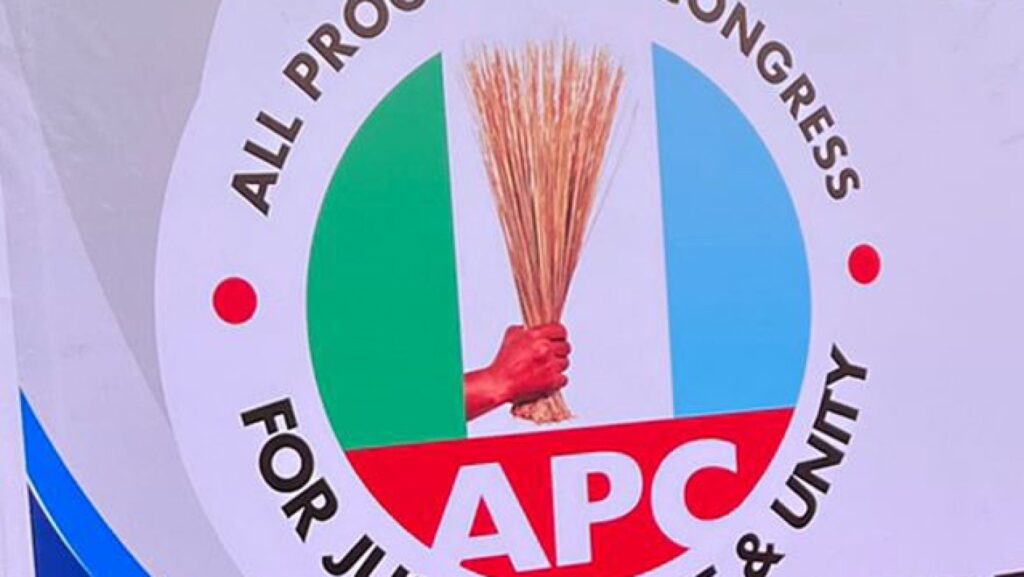By Abdul Lauya
As the All Progressives Congress (APC) navigates internal turbulence ahead of the 2027 general elections, concerns are mounting over the party’s continued tolerance of controversial figures in key leadership positions.
Political observers warn that symbolic gestures, such as the recent resignation of Dr. Abdullahi Umar Ganduje as National Chairman, will be insufficient unless accompanied by a broader commitment to integrity and accountability within the party’s ranks.
Renowned political scientist and governance expert, Professor Peter Akinyemi, has praised President Bola Ahmed Tinubu for what he described as “a courageous and long-overdue move” in facilitating Ganduje’s exit. However, he cautioned that the APC risks derailing its reform agenda if it continues to “reward controversy with power.”
Speaking at a policy forum in Abuja on Saturday, Akinyemi emphasized that Ganduje’s resignation was a necessary first step towards restoring public trust but stressed that retaining Senate President Godswill Akpabio in his current position poses a significant threat to the party’s credibility.
“Tinubu has done what I predicted a year ago,” Akinyemi remarked, referring to an earlier advisory where he warned the President to distance himself from what he termed “two heavy political baggages” to secure electoral success in 2027. “With Ganduje’s resignation, one has been cleared. But the second, Akpabio, remains a major obstacle.”
According to Akinyemi, Ganduje had become a liability, with unresolved corruption allegations and deepening internal dissent casting a shadow over his leadership. “Ganduje became a symbol of everything Nigerians were complaining about, impunity, lack of accountability, and entrenched godfatherism,” he noted.
While commending Tinubu’s decisive action on the Ganduje issue, Akinyemi warned that the APC’s reform process would remain incomplete as long as Akpabio continues to hold the Senate Presidency. “Nigerians want clean hands at the top. The APC must not appear to be rewarding controversy with power,” he stressed.
This sentiment mirrors recent cautionary remarks by veteran journalist and PDP chieftain, Chief Dele Momodu, who described Ganduje’s resignation as a lesson in political expendability under Tinubu’s leadership.
In a widely circulated post, Momodu warned Akpabio that loyalty to the President does not guarantee immunity from political reshuffling. “No one is indispensable. Like it happens to all lackeys, Ganduje’s usefulness has expired. My friend Akpabio should beware,” Momodu noted, urging the Senate President to heed the warning signs.
Both Akinyemi and Momodu’s remarks highlight a growing consensus within political reform circles: that the APC’s credibility crisis stems not just from isolated figures but from a systemic culture of rewarding political controversies with power and influence.
Political analysts argue that unless the party embarks on a deeper purge of controversial figures occupying strategic positions, efforts to sanitize its image ahead of the 2027 elections may fall flat.
There are also speculations that the APC is courting former Kano State Governor Rabiu Musa Kwankwaso to bolster its electoral appeal, a move seen by some as an attempt to counterbalance internal fractures.
For Akinyemi, the path forward is clear. “President Tinubu must prioritize legacy over loyalty. This is not about vendetta; it’s about rescuing Nigeria’s democracy. The APC must be led by credible, competent, and controversy-free individuals,” he asserted.
As the political chessboard continues to shift, the question remains whether the APC will heed these warnings or persist in a pattern that many believe threatens its standing with the Nigerian electorate.


